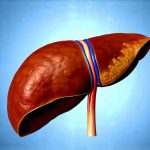The liver often operates silently in the background, diligently performing countless essential functions vital for our overall wellbeing. It’s an organ we rarely think about until something goes wrong, yet it’s arguably one of the most crucial players in maintaining health. Beyond its well-known role in digestion, the liver is a central hub for detoxification – processing and neutralizing harmful substances – and a key regulator of hormone balance. Understanding these functions isn’t just about appreciating the complexity of our bodies; it’s about empowering ourselves to make lifestyle choices that support this hardworking organ and, consequently, optimize our health.
This article will delve into the liver’s multifaceted role in both detoxification and hormonal harmony. We’ll explore the intricate processes involved, how various factors can impact its function, and practical ways to support its optimal performance. It’s important to remember that the liver is not a single entity working in isolation; it interacts closely with other organs like the gut, kidneys, and endocrine system, making holistic health approaches particularly effective for maintaining its wellbeing. A healthy liver isn’t just about eliminating toxins – it’s about laying the foundation for vibrant energy levels, balanced moods, and long-term vitality.
The Liver as a Detoxification Powerhouse
The concept of “detox” is often misrepresented with fad diets and quick fixes. However, true detoxification is an ongoing, natural process performed by several organs, with the liver taking center stage. It’s not about eliminating toxins through extreme measures but rather supporting the body’s inherent ability to neutralize and remove waste products. The liver accomplishes this through a two-phase process, often referred to as Phase I and Phase II detoxification.
Phase I involves breaking down toxins into less harmful forms using enzymes like cytochrome P450. This phase can actually increase toxicity if not supported properly because it creates unstable intermediate metabolites. Think of it like partially dismantling something – the pieces are still potentially dangerous until further processed. Factors such as alcohol consumption, smoking, and exposure to environmental pollutants can overwhelm Phase I detoxification, leading to an accumulation of these reactive intermediates. Proper nutrition, particularly adequate intake of B vitamins and antioxidants, is essential for supporting this phase efficiently.
Phase II detoxification then takes those intermediate metabolites and transforms them into water-soluble compounds that can be safely excreted by the kidneys or through bile into the digestive tract. This involves a range of enzymatic reactions utilizing nutrients like glutathione, amino acids, and magnesium. Glutathione, often called the “master antioxidant,” is crucial in this phase; its production can be hampered by nutritional deficiencies and oxidative stress. A fully functioning Phase II detoxification system ensures that toxins are rendered harmless and efficiently eliminated from the body, preventing their recirculation and potential damage to cells.
Supporting Optimal Detoxification Pathways
Maintaining a healthy liver for optimal detoxification requires a multi-pronged approach focusing on minimizing toxin exposure and providing the nutrients necessary for both phases of detoxification. Here’s how you can support your liver’s natural cleansing processes:
- Minimize Toxin Exposure: This includes reducing consumption of alcohol, processed foods, refined sugars, and limiting exposure to environmental toxins like pesticides, herbicides, and household cleaning products. Choosing organic options when possible and opting for natural cleaning alternatives are good starting points.
- Nutrient-Rich Diet: Focus on a diet rich in fruits, vegetables (especially cruciferous varieties like broccoli and kale), lean proteins, and healthy fats. These foods provide the vitamins, minerals, and antioxidants needed to support both Phase I and Phase II detoxification enzymes.
- Hydration is Key: Adequate water intake is crucial for flushing out toxins through the kidneys and supporting bile flow from the liver. Aim for at least eight glasses of water per day.
The Gut-Liver Connection in Detoxification
The health of your gut microbiome plays a significant role in detoxification. A compromised gut, often referred to as “leaky gut,” allows undigested food particles, bacteria, and toxins to enter the bloodstream, placing a heavier burden on the liver. This is because the liver has to work harder to process these substances, potentially leading to inflammation and impaired function.
- A healthy gut microbiome aids in detoxification by:
- Reducing the overall toxic load reaching the liver.
- Producing enzymes that can help neutralize toxins in the gut itself.
- Supporting bile flow, which is essential for eliminating waste products.
- Conversely, an unhealthy gut can contribute to increased inflammation and oxidative stress, hindering the liver’s ability to detoxify effectively.
Promoting a healthy gut through probiotic-rich foods (yogurt, kefir, sauerkraut), prebiotic fibers (onions, garlic, bananas), and minimizing processed foods is therefore essential for supporting detoxification pathways. The gut and liver are inextricably linked, and addressing both aspects is critical for overall wellbeing.
Liver & Hormonal Balance: A Delicate Relationship
Hormones are powerful chemical messengers that regulate countless bodily functions. While the endocrine glands produce hormones, the liver plays a vital role in their metabolism and elimination. It’s not about creating hormones but rather processing them—breaking down excess hormones to maintain balance. This is particularly important for sex hormones like estrogen, cortisol (the stress hormone), and thyroid hormones.
The liver metabolizes hormones into forms that can be excreted by the kidneys or through bile. If liver function is compromised, hormonal imbalances can develop. For example, an impaired ability to process estrogen can lead to estrogen dominance, which has been linked to conditions like PMS, fibroids, and certain types of cancer. Similarly, difficulty metabolizing cortisol can contribute to chronic stress and adrenal fatigue.
Furthermore, the liver produces proteins that transport hormones throughout the body. These carrier proteins ensure hormones reach their target tissues effectively. An unhealthy liver may not produce enough of these proteins, leading to hormonal imbalances and reduced responsiveness to hormone signals. Maintaining a healthy liver is therefore crucial for ensuring proper hormonal regulation and overall endocrine function.
It’s clear the liver isn’t just an organ; it’s a cornerstone of health, intricately involved in both detoxification and hormonal balance. By understanding its functions and adopting supportive lifestyle choices, we can empower ourselves to optimize this vital organ and unlock our potential for long-term wellbeing. Remember that consistency is key – small, sustainable changes over time are far more effective than drastic, short-lived measures. Focusing on a nutrient-rich diet, minimizing toxin exposure, supporting gut health, and prioritizing stress management will all contribute to a healthy liver and a healthier you.


















